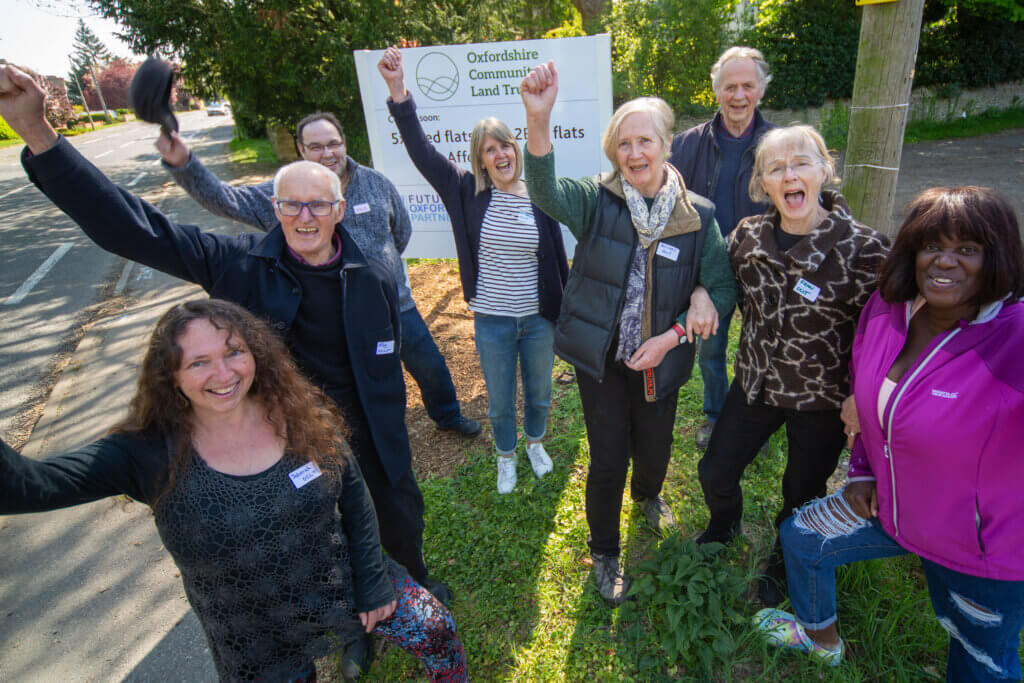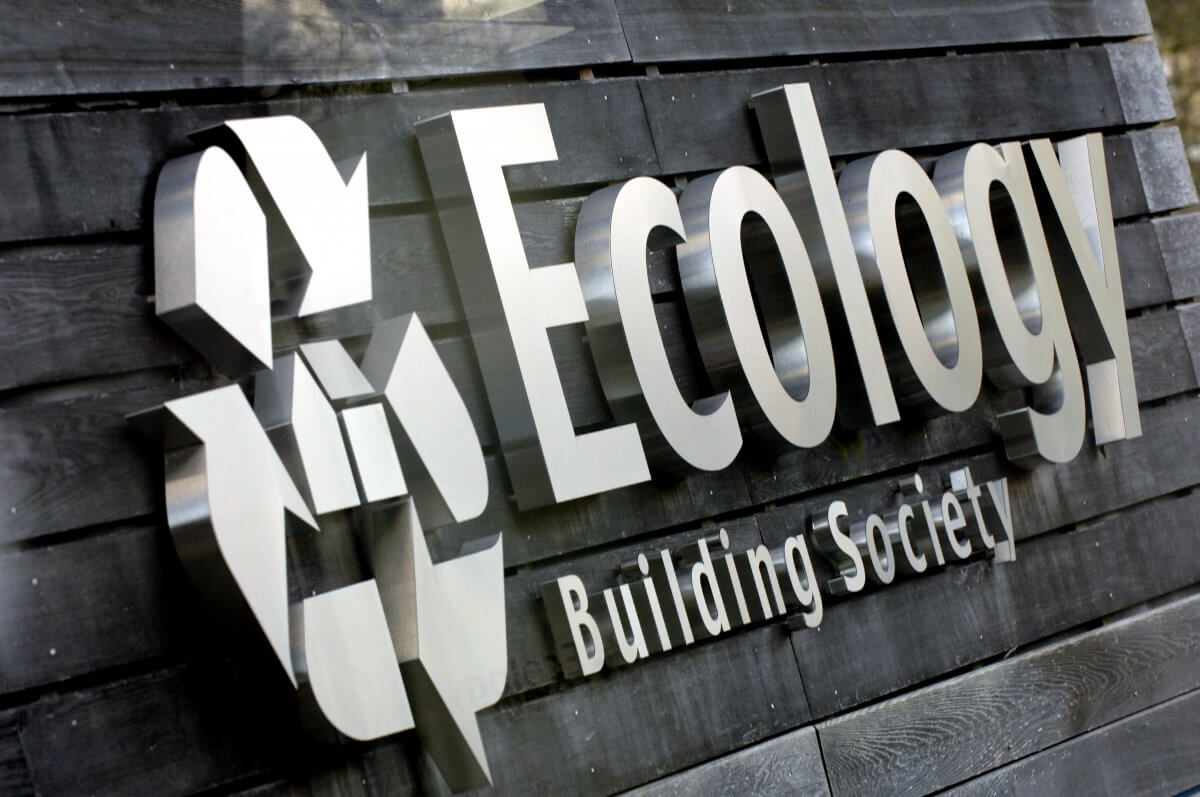Sustainable Finance: Which Savings Account Should I Choose?

In previous articles in this series we’ve looked at the reasons for saving money, the issues and benefits of saving sustainably and the reasons why you should have a better understanding where your money goes.
In this article we will look at the types of savings accounts available, including regular savings, Cash ISAs and Stocks and Shares ISAs and demonstrate, in the case of Ecology, exactly where your money goes and how it benefits communities and the environment.
Types of Savings Accounts
There are various types of savings accounts designed to meet different financial needs. The most common include:
Regular Savings Account:
- A basic savings account to help create a monthly spending habit and build up a Savings pot.
- Typically offer moderate to higher interest rates but tend to have limits on how much you can save each month.
- Some Regular Savers mature after 1 year to a lower paying account.
Easy Access Account
- We recommend all Savers have one of these for emergencies.
- Lets you pay money in and take money out whenever you need.
- Tend offer lower rates because you have unlimited access.
Limited Access Savings Account:
- Can offer higher interest rates than other savings accounts as a reward for no or less immediate access.
- These could be Fixed Term accounts, notice accounts or limited withdrawal products.
- Often requires a higher initial deposit, maintaining a minimum balance or requires a specific notice period for, or limit on, withdrawals.
Cash ISA
- A Cash Individual Savings Account (Cash ISA) is a tax-efficient savings account:
- Tax-Free Interest: interest earned on the savings in a Cash ISA is exempt from income tax.
- No Capital Gains Tax: Any capital gains generated from the investment growth within a Cash ISA are also tax-free.
- Easy access to funds.
- Annual ISA Allowance: There is an annual limit on the amount that can be deposited into a Cash ISA. This limit is set by the government and may change each tax year. The current 2024/25 ISA allowance is £20,000.
- You don’t need to declare your ISA on your tax return.
Stocks and Shares ISA
- A stocks and shares ISA has the same tax benefits and £20,000 allowance as the cash ISA but allows you to invest your money in the stock market. Ecology does not offer this type of product but can be a good addition to your savings collection.
NS&I
- NS&I stands for National Savings and Investments, a financial institution owned and backed by the UK government. Its primary purpose is to raise funds for the government’s borrowing needs.
- Provides a range of savings products including Premium Bonds and ISAs, both of which promote tax-free savings.
- It is low risk as NS&I is backed by the government and there is no risk of losing the capital invested in its products.
- There is an ‘ethical’ investment option in the Green Savings Bond to support environmentally friendly and ethical projects.
These savings products, with the exception of NS&I, are available from a wide range of providers: from banks and building societies to stockbrokers and intermediaries. Deciding which one is best for you depends on a number of factors including: the interest rate; the amount you want to save; your attitude to risk; your plans or goals for your savings, how soon or how easily you’ll need to access your savings; and tax implications. To make your savings more sustainable requires the additional consideration about how your money is used: does it benefit people and the environment, for instance, or will it help reduce our carbon footprint and sustain communities?
So how do we find out which is the ‘best’ saving account as well as being in line with our green and ethical values?
Download our ethical Savings guide
How To Choose An Ethical Savings Account
Savings Accounts Comparisons Sites
When setting out to open a savings or ISA account, like most people, you’re probably looking out to get the best deal. Online comparison sites like MoneySuperMarket or CompareTheMarket are often the first place you’ll start to look. Such sites can help you make more informed decisions. They are convenient and time-saving, up-to-date and some even come with special promotions thrown in.
All too often, however, a price comparison site’s ‘best ISA’ or ‘best savings account’ is based purely on interest rates and notice periods. Some comparison sites also have agreements with organisations and show providers at the top of the tables that pay them to do so. This can be misleading. To save sustainably, it is essential to think beyond the top rate and understand how your personal financial goals are linked to wider, more consequential, environmental, ethical and social ends.
Consequential Finance
The majority of comparison sites assume their customers are only after one thing: to maximise their return on investment (ROI), and the focus on interest rates. It’s same for the CEOs of large multinational companies whose single-minded goal is to maximise shareholder value. There is little focus on other features or benefits including what the consequences might be in the world beyond the drive for personal gain.
You have to consider: are you happy to put our money into an account with a great interest rate ‘no questions asked’? On the other hand, how would you feel if you knew some of that money had been invested in fossil fuel extraction which not only contributed to global warming but also displaced an indigenous people from its land, or had a negative impact on nature; or what if your money had been invested in an armaments manufacturer whose smart bomb had just razed a village to the ground?
These are very unpleasant thoughts, of course, and it’s not likely to be your intention to contribute to such negative impacts simply by opening a fixed rate cash ISA! But that’s precisely why we need to stop and think about the consequences of our finances: exactly where and how our is our money being used? How can we know?
ISA Key Product Details…?
We searched online for the ‘best ISA’ and clicked on the link to one of the price comparison sites that came top of the search engine results. We then selected one of the ‘best’ value ISAs at the top of their product list (a Fixed Rate Cash ISA) and clicked through to the provider’s website for further details. We selected “Key Product Details’ and this told us about the great interest rate we would get and how we can take advantage of our annual tax-saving ISA allowance; it also told us about how much we can deposit and how to transfer from another provider. Nowhere did it tell us how our money is used, where it will be invested and what the environmental or social consequences of that investment might be. For a sustainable saver these are the kind of ‘key product details’ you need to know! Unfortunately, this situation is typical of most High Street banks and mainstream savings providers.
Alternative Ways To Choose Your Savings Provider
There are alternatives to the high profile price comparison sites and we have discussed some of these in our previous article.
MotherTree, for example, is a website that provides information about a bank’s carbon footprint and allows you to switch your current account to a provider with a much healthier one. Their banking comparison table is based on how much £10,000 in a current account contributes in carbon emissions. In this case coming top is not good! Their current data is as follows:
| # | Bank | TCO2 per £10k in account |
| 1 | Barclays | 2.376 |
| 2= | HSBC | 2.170 |
| 2= | First Direct | 2.170 |
| 4 | Chase | 1.897 |
| 5 | Santander | 1.742 |
| 6= | Natwest | 1.295 |
| 6= | RBS | 1.295 |
| 8 | Monzo | 1.088 |
| 9= | Lloyds | 0.704 |
| 9= | Halifax | 0.704 |
| 11 | Metro Bank | 0.694 |
| 12 | Starling | 0.610 |
| 13 | Virgin Money | 0.517 |
| 14 | Nationwide | 0.432 |
| 15 | The Cooperative Bank | 0.328 |
| 16 | Triodos | 0.317 |
The carbon footprint for £10k deposited to the worst offending High St. banks – such as Barclays and HSBC – is the equivalent of 11 return flights from London to Rome!
Although we cannot know exactly how our savings are used by any specific bank (because they don’t tell us!) we know that the chances of contributing to the climate crisis is much greater with some banks than others. You may notice, by the way, that Ecology does not feature on this league table, that’s simply because we do not offer current accounts.
On the other hand, we do offer a range savings accounts including a Cash ISA. And with these products you can compare us on comparison sites such as Ethical Consumer and Good Shopping Guide both of which assess financial institutions, savings and ISA accounts based not simply on interest rates but by other factors including ethics, sustainability, politics, company ethos and environmental and social impact.
Sustainable Savings the Ecology Way: Showing Not Telling
Although it’s nice to be assessed and rated favourably by independent organisations, transparency from the provider itself should also be a key factor. At Ecology we feel it is important to not just tell our members what we do with their money but actively show the positive results of our lending through case studies and face-to-face at members’ meet-ups and Annual General Meeting.
The money from all our savings accounts is used to make a positive environmental and social impact as well as giving a fair financial return to our savers. As a mutual, we are owned by our members, who are also our customers and we operate with our members’ needs and values in mind: we put people and planet before profit.
Caroline, for example, one of our savers living in mid Wales, has an interest in green economics and one day hopes to build her own eco-home or join a housing co-operative, so it made sense to support a building society like Ecology that lends in these areas. As she put it:
“I wanted to know that my savings would not be used unethically, such as supporting arms deals. Now I know that the money I save is helping other people – it means so much to me. I’m very happy… Thank you!”
Saving with Ecology means joining a community of like-minded people committed to building a greener future. Together, our savers create funds to support more properties and projects which, in turn, increases our positive impact on the environment, locally and globally.
Global Link – Bringing People Together
Take the case of Global Link, a Lancaster-based Development Education Centre, formed in 1993, originally focussing on global citizenship education and community heritage projects with schools and the wider community. When Lancaster became a dispersal area for asylum seekers and refugees in 2015 Global Link supported these arrivals with small-scale lunch drop-ins. These drop-ins became increasingly popular not only with refugees but also with locals and creating real sense of community spirit. Over time, services grew to the point where a permanent home was needed.
Through a combination of crowd-funding and a mortgage from Ecology they managed to find and renovate their own education centre. As Gisella, Executive Director of Global Link, says:
“What I would say is that without the Ecology Building Society mortgage, we would never have been able to complete this project. That extra cash boost helped us to get the building renovated into the working education centre you see today.”
Find out more about Global Link
Bunker Self-Build: Affordable, Energy-Efficient Family Homes
Bunker Housing Co-op was a response to the spiralling and unaffordable house prices and sub-standard rental accommodation in Brighton and Hove. It was the brainchild of Martyn Holmes and Agata Bogacka who live in Brighton with their children. Together with a neighbouring family, they were inspired by a vision of an alternative to cramped, damp, overpriced accommodation to form a housing co-operative with the ambition of self-building their own homes. An Ecology interest-only mortgage provided funding for the build phase and gave the families time to move house and be in a position to pay rents to the co-op. The overall mortgage term of 40 years has also ensured that the project is financially sustainable for current and future members of the co-op.
The houses themselves were built using a modular off-site construction method. The resulting homes are filled with natural light, providing a healthy living environment which maintains a constant ambient temperature due to excellent insulation, triple glazing and underfloor heating. Project like this use more sustainable materials, produce more energy-efficient homes and reduces the long-term carbon footprint.
Ground-breaking affordable and sustainable projects like this are what Ecology’s all about and precisely what our savers money is used for.
Find out more about Bunker Self-Build




